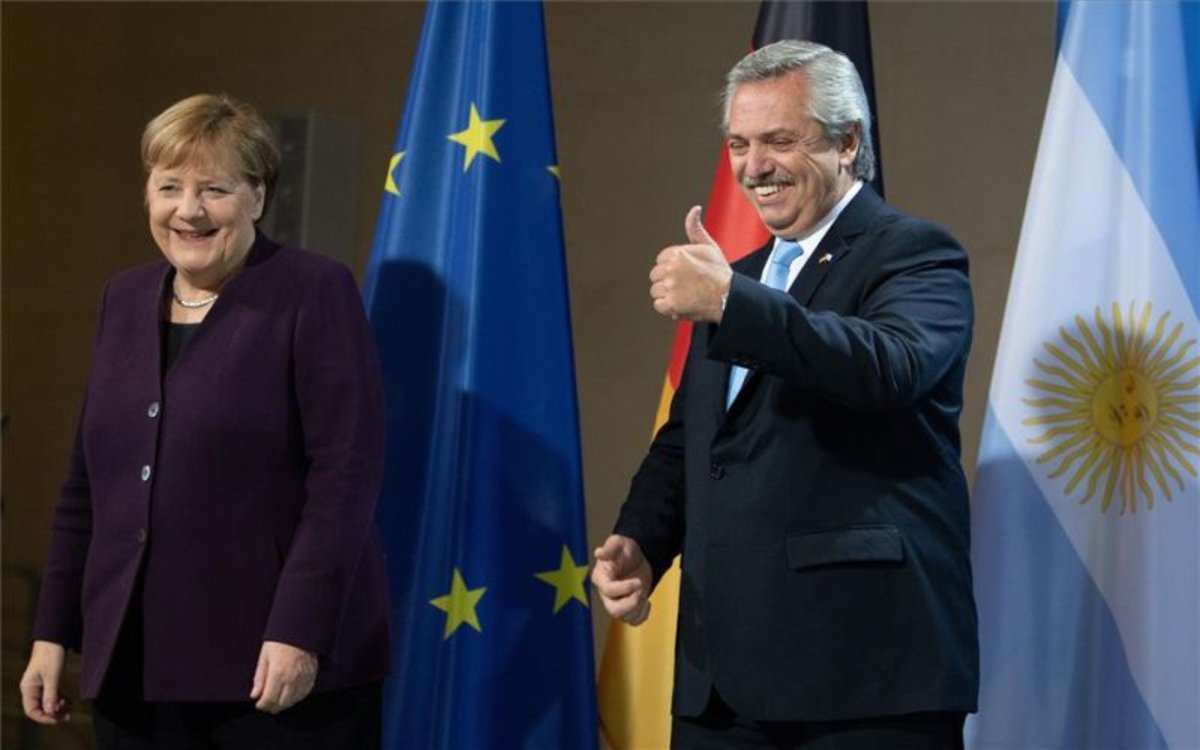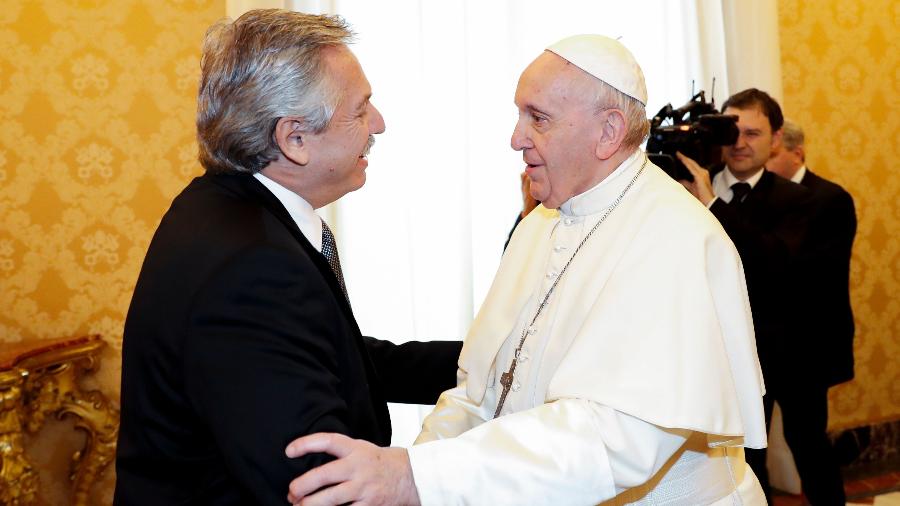RIO DE JANEIRO, BRAZIL – German Chancellor Angela Merkel has assured Argentina’s President Alberto Fernández, during his inaugural visit to Berlin on Monday evening, of her support in overcoming the economic crisis in the South American country. At a joint press conference in the Chancellor’s office, Merkel said the German government would assess “where German and European support and assistance could be provided”.

“We obviously also welcome the talks with the International Monetary Fund,” she added, referring to negotiations between the new left-wing government in Buenos Aires and the IMF. She said that the German government was aware that Argentina was in a difficult situation. Argentina is currently indebted to the tune of approximately US$300 billion (R$1.2 trillion), and the poverty rate stands at around 40 percent.
Fernández stressed that Argentina and Germany shared “the concern over multilateral organizations […] where we believe the world should converge”. In terms of bilateral economic relations, he said he had “a great meeting with potential investors in Argentina”. At this meeting, he added, “all the issues at stake and alternatives” were discussed.
At the press conference in Berlin, shortly before a working meeting with Fernández, Merkel emphasized the great interest of German companies in investing in Argentina. The Chancellor and the Argentinian President further stressed the relevance of the free trade agreement between the EU and Mercosur. The agreement has been criticized in the months following its signature, and ratification is still pending.
As part of his talks with German companies, Fernández met with representatives of Volkswagen. The German automobile manufacturer intends to invest some US$ 800 million in Argentina, as announced by the group and the Argentinian presidential office. VW’s production executive Andreas Tostmann and Latin America head Pablo Di Si took part in the talks.

Fernández had started his trip on Thursday in Rome and the Vatican, where he met the Pope. After his visit to Berlin, he will travel on to Spain and France.
Fernández’s predecessor in office Mauricio Macri took out new loans with the IMF in 2018 after a full debt reduction. The neo-liberal president thus led the country into massive debt in the midst of a severe economic crisis, more than a decade after former President Néstor Kirchner had paid off all outstanding debts in 2006 and ended 60 years of cooperation with the IMF.
Macri, on the other hand, took out US$57 billion, the highest loan ever granted by the IMF. The agreement, which failed to receive parliamentary approval, allegedly violated both IMF guidelines and national laws. Macri and other officials in his government are facing legal proceedings as a result.
The new Argentine government postponed to Tuesday a debt restructuring proposal. President Fernández has inherited a deep economic crisis from Macri and intends to renegotiate with the IMF and other creditors the repayment of loans totaling US$100 billion.

